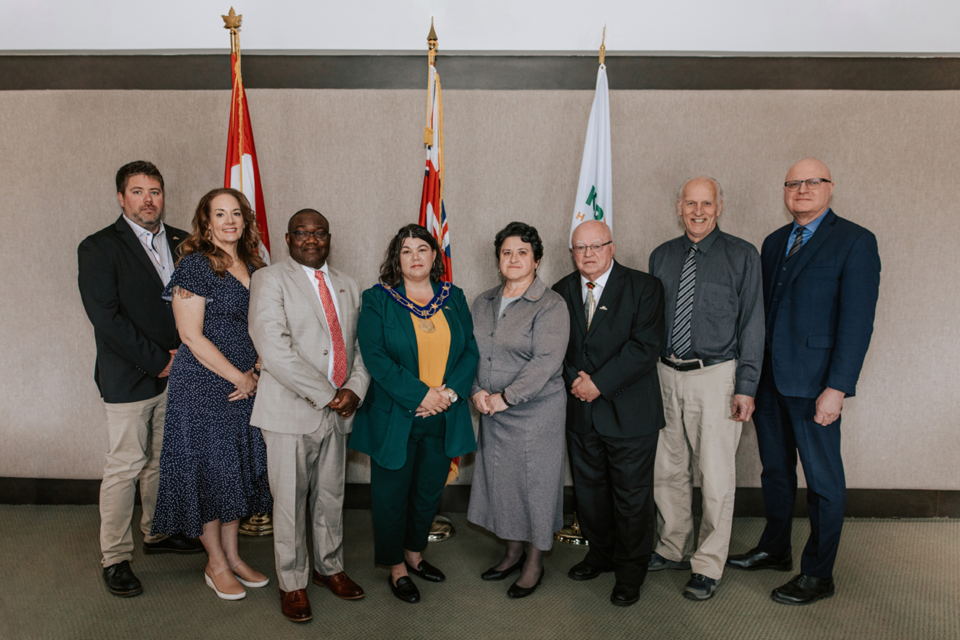As Ontario prepares to extend strong mayor powers to more municipalities, there's a range of reactions from Northern leaders.
While Kirkland Lake Mayor Stacy Wight has no intention of using them, Cochrane Mayor Peter Politis welcomes the change.
On Wednesday, the province announced it wants to extend strong mayor powers to 169 more municipalities.
The Northern Ontario communities on the list are Timmins, Kirkland Lake, Cochrane, Kapuskasing, Hearst, Iroquois Falls, Englehart, Temiskaming Shores, Black River-Matheson, and Cobalt.
Politis provided a written statement on the announcement, saying he supports the initiative.
“The decision to grant strong mayor powers is a crucial step towards modernizing government by reducing unnecessary bureaucracy and streamlining processes that have historically hindered the timely development of homes and municipal infrastructure," he said.
Cochrane, said Politis, has a 69-year infrastructure and road repair backlog, and an urgent need for more housing.
He believes these powers will provide the flexibility needed to push key projects forward while still respecting council's authority.
“It is essential to recognize that the council remains a cornerstone of this new direction and in large part the ultimate authority on most issues, while these powers provide me, as mayor, with more latitude to expedite some outcomes,” he said.
Wight is more cautious.
“I do appreciate the intention behind these powers. I understand,” Wight said.
“Unfortunately for Kirkland Lake, they simply don't address the challenges that we're faced with. It's not bureaucracy that's holding us back from moving our municipality forward, it's finances, or lack thereof.”
The powers allow mayors to appoint chief administrative officers, hire department heads, reorganize departments, propose or veto certain bylaws tied to provincial priorities, and more. The province says the goal is to accelerate the building of homes and infrastructure.
Wight said she’s spoken with officials from the Ministry of Municipal Affairs and Housing since the announcement, and now sees the powers as “another tool in the toolbox” for municipal leaders, particularly during emergencies, when fast action may be needed.
She has no plans to use them.
“It is my intention to delegate the authority back to both the CAO and the whole of council in the areas that I can,” she said.
“We may not always agree at the council tables, but we always respect the majority vote of council and I think that's the best way any municipality can make a decision.”
Wight voiced concerns over the lack of municipal-level oversight, noting that the potential for misuse exists.
“They say, power corrupts. And you can see how detrimental these powers could be in the hands of the wrong individual,” she said.
“Anyone off the street can be fortunate to be elected to council or the mayor’s chair, and just because you're elected doesn't mean you're an expert in municipal organization. This empowers kind of an overreach that can be really detrimental.”
Timmins Mayor Michelle Boileau did not agree to an interview, but shared a brief statement.
“The purpose of strong mayor powers is to help deliver on provincial priorities, such as building more homes, transit and other infrastructure across Ontario,” she said.
For Wight, the focus remains on collaboration and transparency.
“Democracy is very important, and we're kind of seeing what happens when a leader tries to circumvent authority,” she said.
“You always hope your elected officials act in the best interests of the community.”
For Politis, the new authority provides a way to improve not just infrastructure and housing, but also public services.
“This kind of reform can ensure that our residents receive even more efficient and effective services, enhancing overall satisfaction and trust in our local government,” he said.
The announcement to expand the powers is in the wake of the City of Orillia Mayor Don McIsaac being temporarily granted the powers to deal with the state of emergency called for the ice storm that devastated the area.
He used the powers to effectively fire the CAO who had just been hired and promoted Orillia's deputy CAO to the position.
RELATED: Departing deputy CAO 'bewildered' by Orillia termination before even starting
Orillia councillors are calling on the province to rescind their city's strong mayor powers.
OrilliaMatters talked to David Arbuckle, executive director of the Association of Municipal Managers, Clerks and Treasurers of Ontario (AMCTO), about strong mayor powers. The organization represents about 2,300 members across the province.
AMCTO has been against strong mayor powers since the Strong Mayors, Building Homes Act was passed in 2022. AMCTO has been studying its use and abuse.
"We've been tracking the use of strong mayor powers and there is no evidence that municipalities with strong mayor powers have any more housing starts than those that don't," Arbuckle told OrilliaMatters.
Additionally, AMCTO's research has found the hiring and firing of municipal CAOs and other senior staff is being done outside the realm of new housing.
The expanded strong mayor powers will be posted on the Ontario Regulatory Registry until April 16. If the proposal moves ahead, the powers are permanent on May 1.
- With files from OrilliaMatters




